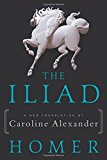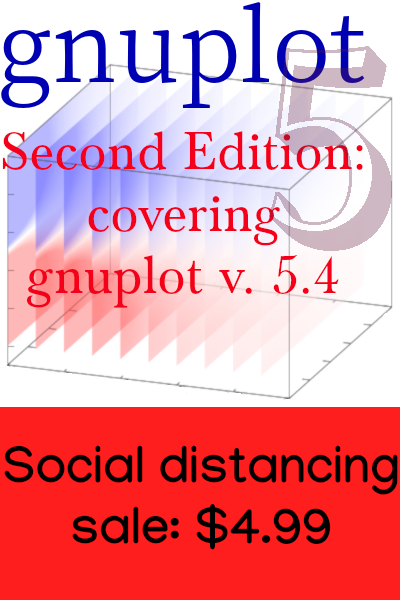Literally Egregious
When I was a wee lad a book club, as a bonus for joining, bestowed upon our family the Compact Edition of the Oxford English Dictionary. This is not an abridgement, but the full-blown 20-volume work printed in tiny type, on thin pages, in two fat volumes, in a box with a little drawer holding a magnifying glass. You can still buy this, although it’s in one volume now, somehow.
I already liked words. But this was dangerous. It was like injecting heroin into the veins of some kid who had up to then merely puffed on the occasional opium-laced cigarette.
For the uninitiated, let me explain. This thing has all the words. Even, as I of course found out without delay, the naughty ones, “not now considered decent.” But that’s not what makes the OED the OED. It also has all the definitions. For each word, you get its first known appearance in the language, whether that be Modern, Middle, or Old. And as its meaning shifts and changes through the decades and centuries, you get each definition, and you are helpfully told which are obsolete, or archaic, or local. But you don’t only get the definitions. Each definition is justified by a collection of quotations from contemporaneous books and periodicals. Each entry provides the reader with a rich picture of the word’s travel through the English language. Look up a word like “foot” and you may be faced with an entry of many pages: read these and you will learn much about not only all the things that “foot” has meant, but about the history of the English speaking peoples.
What makes it all work, of course, is the skill and dedication of the OED’s vast team of lexicographers. The sources they use to justify their definitions are limited to competent wielders of the language. The results are not only rich in historical context, but accurate and dependable definitions. The OED will not mislead you into thinking that the primary definition of “accolade” is “praise.”
The OED is in a class of one. Lesser pretenders to the title of Dictionary, like the fat and wayward Webster’s Unabridged, tremble like ill-prepared schoolchildren at the Master’s feet.
I spent, perhaps, a bit too much time poring over these heavy volumes with my magnifying glass. My parents were slightly concerned, but they indulged me. There were many surprises. Rex Stout has his fictional sleuth Nero Wolfe use “plerophory”: off to the OED! It notes that this word is rare, with only one known example. How does a word like that get in to the dictionary? And how did my favorite detective novelist learn it? Does he, too, pore over the OED for fun?
All this was brought back to me by the recent ruckus over what happens when you ask Google to define “literally.” People have only noticed this because Google has lately been experimenting with summarizing information and presenting it predigested as part of the answer to a search query, in addition to its traditional list of links. If you look up the word in question you will see two nearly opposite definitions right there. This seems to be a crisis of sorts to those who, not quite accurately, interpret this as Google itself making factual claims; in fact, the information in these summary boxes are drawn from the search results and are there to save you some clicks.
Nevertheless, it did annoy some to discover that several online dictionaries now include a second definition of “literally” that means “not literally”, and is used as some kind of semi-literate intensifier. I admit I was among their number. But I now understand that my consternation was due, mainly, to the “recency illusion:” the belief that things that one has only recently noticed are actually of recent origin. It turns out that the intensifier use of “literally” has been perpetrated for centuries, including by authors not normally regarded as not fully literate. This word, like a handful of others, has been used for some time in two nearly opposite senses.
And this is what reminded me of my youthful conclaves with the OED. I was obliged to look up “egregious” one evening. You know what it means now. But up to the late 16th century it meant nearly the opposite: something like “excellent” (directly from the Latin egregius). It acquired the opposite, current, meaning through its frequent ironic use. Now the irony has fallen away, and the original meaning is forgotten. When people say “egregious” they mean literally egregious. This fascinated me at the time, and it’s still the most amusing example I know of the evolution of the meaning of an English word.
All this has me wondering: are we witnessing linguistic history at a turning point? Do we stand, in relation to “literally,” as those in the 16th century stood in relation to “egregious”? Will our grandchildren only know definition 2? Will only the curiously bookish, along with historians and linguists, know of the obsolete sense? What word will our descendants use where we use “literally” now? Can we save them the trouble of invention through a campaign of resistance, with ridicule as its chief weapon? Or will this be as fruitless as most attempts to adjust the course of history?
See Also
You’re probably using the wrong dictionary by James Somers: highly recommended.
Nimrod: another word whose sarcastic meaning, by some accounts due to Bugs Bunny, has supplanted its original partly-opposite meaning, a great hunter from the book of Genesis. Bugs teased Elmer Fud by referring to him with that name.


